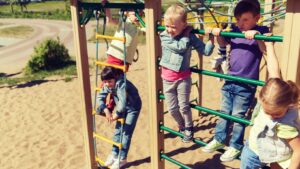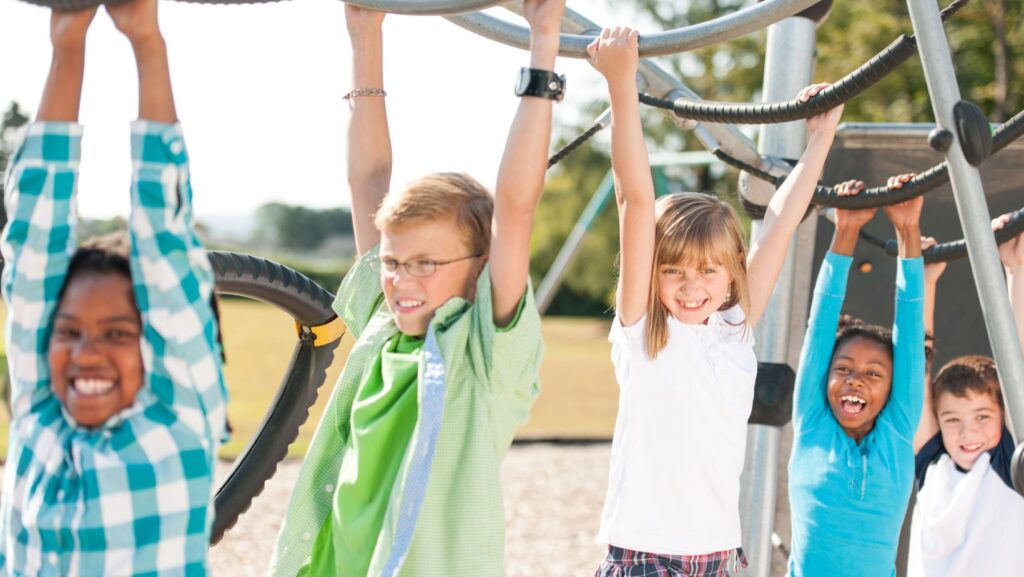In today’s digital age, the importance of outdoor play for children is gaining recognition for its numerous benefits. From physical health to cognitive development, engaging in outdoor activities offers children a holistic approach to learning and growth. As trends in outdoor play continue to evolve, caregivers and educators are exploring innovative ways to encourage children to spend more time in nature.
Amidst concerns about screen time and sedentary lifestyles, the shift towards promoting outdoor play has sparked a movement towards nature-based experiences and unstructured play. With a focus on fostering creativity, social skills, and emotional well-being, the trends in outdoor play for children are reshaping the way we view education and child development. Embracing these trends not only enhances children’s overall health but also instills a lifelong appreciation for the great outdoors.
Trends In Outdoor Play For Children
Recognizing the significance of outdoor play in today’s digital era, caregivers and educators are actively embracing various trends to promote children’s engagement with nature. These trends reflect a shift towards prioritizing unstructured outdoor activities to counterbalance the increasing screen time and sedentary routines prevalent among children.
- Nature-Based Playgrounds: Many playgrounds are now designed to incorporate natural elements like rocks, logs, and plants, providing children with opportunities for sensory experiences and imaginative play. These nature-based settings offer a refreshing alternative to traditional equipment-focused playgrounds.
- Adventure and Risk-taking: Embracing controlled risks during outdoor play is gaining traction, as caregivers understand the importance of allowing children to explore and confront challenges within safe environments. This trend promotes resilience, problem-solving skills, and self-confidence in children.
- Outdoor Learning Environments: Integrating outdoor spaces into educational settings is becoming increasingly popular. Outdoor classrooms, gardens, and nature trails offer a dynamic learning environment that enhances academic performance, creativity, and overall well-being.
By aligning with these trends and encouraging outdoor play experiences, caregivers and educators can nurture well-rounded children who not only benefit from improved physical health and cognitive development but also develop a deep-rooted love for the outdoors that can last a lifetime.
Benefits of Outdoor Play for Children
 Outdoor play offers numerous advantages for children, encompassing physical health benefits as well as mental and emotional well-being. Engaging in outdoor play helps children stay active, reducing the risk of obesity and related health issues. It promotes stronger muscles, improved coordination, and better overall physical fitness. Exposure to natural sunlight also aids in the production of vitamin D, essential for healthy bone development.
Outdoor play offers numerous advantages for children, encompassing physical health benefits as well as mental and emotional well-being. Engaging in outdoor play helps children stay active, reducing the risk of obesity and related health issues. It promotes stronger muscles, improved coordination, and better overall physical fitness. Exposure to natural sunlight also aids in the production of vitamin D, essential for healthy bone development.
Outdoor play fosters creativity, imagination, and problem-solving skills in children. It provides opportunities for exploration and sensory experiences, enhancing cognitive development. Additionally, spending time outdoors reduces stress, boosts mood, and promotes a sense of calm and well-being.
Current Trends in Outdoor Play
Incorporating Technology into Outdoor Play
Integrating technology like interactive apps or GPS-based games can enhance outdoor play experiences for children. By blending digital elements with physical activity, caregivers and educators can make outdoor play more engaging and educational. This trend aims to merge the benefits of technology with the advantages of outdoor play, creating a well-rounded and stimulating environment for children.
Nature-based learning programs are gaining popularity as they offer opportunities for children to explore the natural world while engaging in educational activities. These initiatives focus on environmental awareness, sustainability, and outdoor skills, providing children with hands-on experiences in nature. By promoting a deeper connection to the environment, nature-based learning enhances children’s understanding of the world around them.
Outdoor play for children is not just a pastime but a crucial component of their overall development. With the evolving trends in outdoor play, such as nature-based experiences, unstructured play, and the incorporation of technology, children are exposed to diverse learning opportunities. By prioritizing safety measures and inclusive design in outdoor play environments, caregivers and educators can create spaces that promote exploration and well-being. These trends reflect a shift towards recognizing the importance of active outdoor play in fostering children’s physical health, cognitive abilities, social skills, and emotional resilience. Embracing these trends ensures that children have access to enriching outdoor experiences that contribute to their holistic growth and development.



